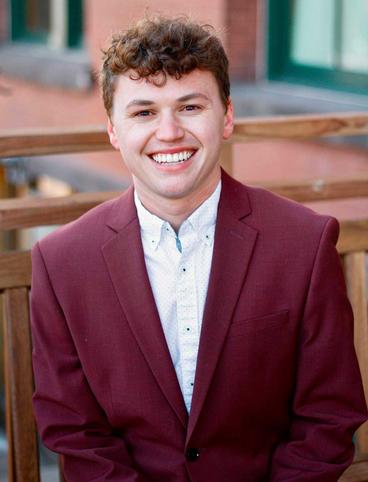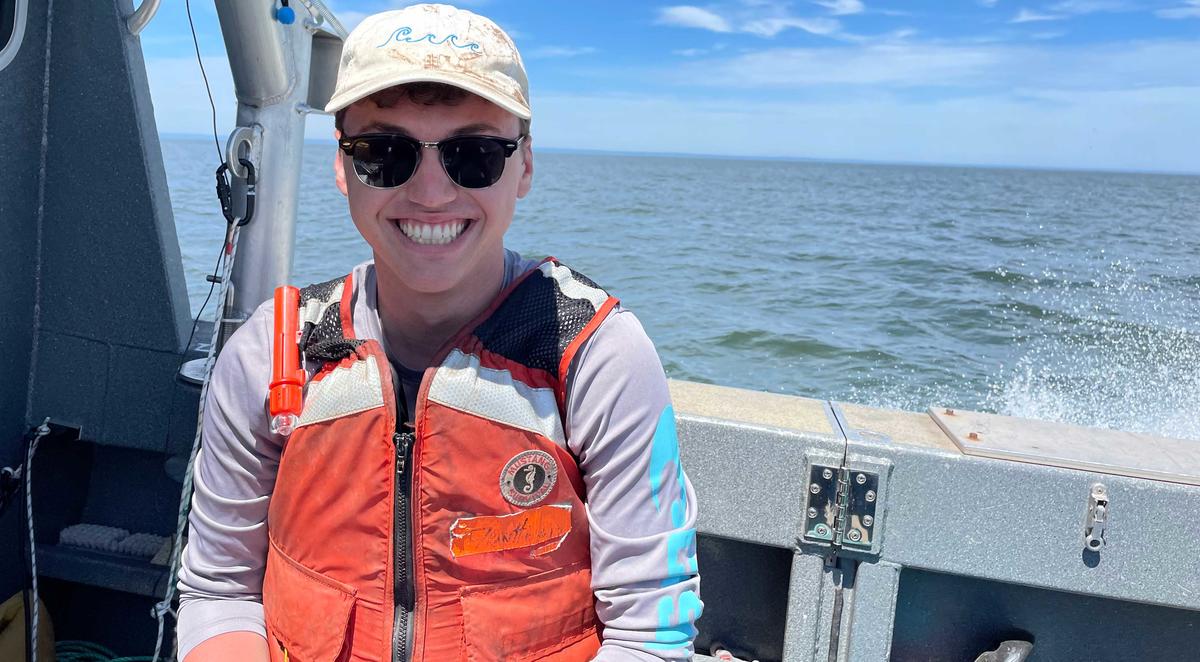I remind myself of lab protocol, rinsing the bottle three times before capping it and placing it in the cooler. My lab mates pull their sensors from the water. We go through our list of tasks: coordinates, temperature, conductivity, depth, light, chlorophyll—all boxes are checked. I tell the captain, “I think we’re good to go!”
Suddenly the silence is broken by the engines of the Kingfisher, the LLO’s small research vessel. I watch the Apostle Islands get smaller as we speed toward Duluth, but I know it will be another six hours before we reach the harbor. That was just our first sample site.
Back at the Lab
When we get back to the LLO, we haul hundreds of liters of water up the steps. A network of filters and PVC pipes, all connected to a vacuum, waits for us on the lab bench. We begin to process the water. One person carefully measures the volume that passes through each filter, checking to see if the filters have enough color in between each pour. Another collects filtered water in bottles, placing samples in the freezer to be analyzed in winter months—when we can’t be out on the lake.
Processing the water takes time, so as we wait, we share stories from past lives. Our lab is a rag-tag group of graduate students and undergrads. We come from different places, and we have lived different lives, but there is something beautiful about finding friendship as we stand around the lab bench. Growing up, this is what I dreamed - joining a team of intelligent, passionate scientists all concerned with understanding our ecosystems, so we can find ways to protect them. The opportunity to do so on the world’s greatest lake was the cherry on top.
I joined the Sterner Lab at the LLO in the summer of 2020. After moving home to South Dakota during the pandemic and working at our local grocery store, I needed an out. I missed the big lake. Luckily for me, the Sterner Lab was hiring an undergraduate research assistant. I jumped at the opportunity, but I didn’t expect life to change the way it did.
Groundbreaking Research
Research is currency in an academic setting, and once a student gets their foot in the door, countless more doors begin to open. When I started at LLO, I was unaware of the reputation of the faculty I was mentored by and the groundbreaking research being conducted.
Faculty, lab managers and technicians, and graduate students taught me so much about asking questions, formulating hypotheses, and testing those hypotheses with adequate methods. Those skills landed me other amazing opportunities, like participating in the NSF Research Experience for Undergraduates at the University of Washington’s Friday Harbor Marine Labs—the nation’s premiere marine biological research station.

Yet the most valuable lesson I learned is what has shaped my academic career and professional trajectory most profoundly. We sat around a long table in the LLO, and Dr. Sterner pulled out his laptop. Today was data day at the lab meeting, which was normally met with rolled eyes from the undergrads at the table, but today was different. As we reviewed numbers and trends, I remember Bob pausing and asking the group, “What story does this data tell?”
"What story does the data tell?"
In that moment, my entire perspective of research, data, and numbers changed. I realized that research can be so much more than a publication, it can transform into a story that motivates people to care for the vulnerable ecosystems that we call home. From that day forward, I was determined to find ways to turn all scientists into storytellers.
Shortly after that lab meeting, I applied for a position at the Science Communication Lab. I began translating complex research into digestible material for the broader public to bridge the gap between academic and public understanding of science. The research skills I developed as an undergraduate at the LLO were quickly put to use. I traveled to Morocco with the Undergraduate Research Study Abroad program, where I studied how Morocco has used science communication as a tool to become a leader in global climate policy and public understanding of climate change.
I would not have the scientific literacy nor the research skills I have today without the mentorship from faculty, staff, and graduate students at the Large Lakes Observatory. I am forever grateful for my time with the Sterner Lab for giving me life-long friends, countless memories of sampling Lake Superior, and a passion for research.
In May of 2023, I graduated from UMD with a degree in Biology and Communication, and this fall, I begin graduate school at the University of Minnesota Twin Cities to study science communication at the Hubbard School of Journalism and Mass Communication. Moving forward, I find comfort in the fact that Bob will continue to ask his students, “What story does this data tell?” Because as he asks that question, I get to discover the best way to tell that story.
